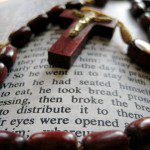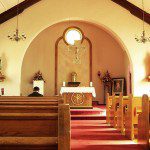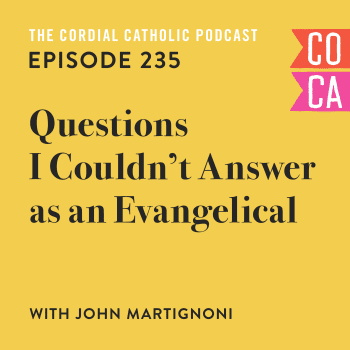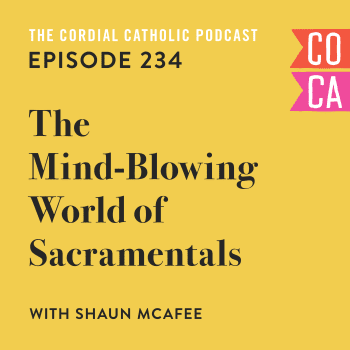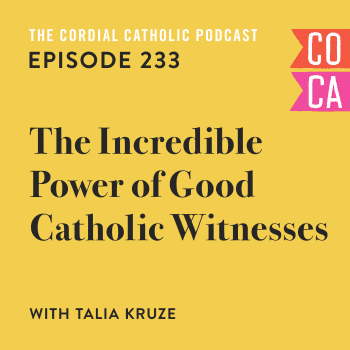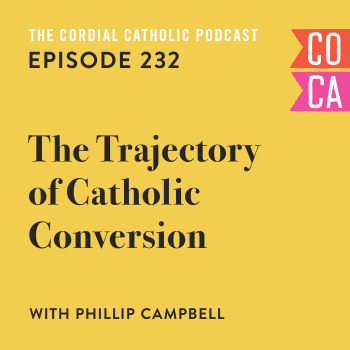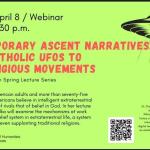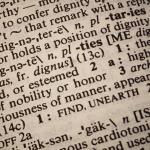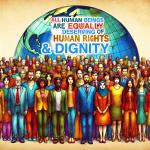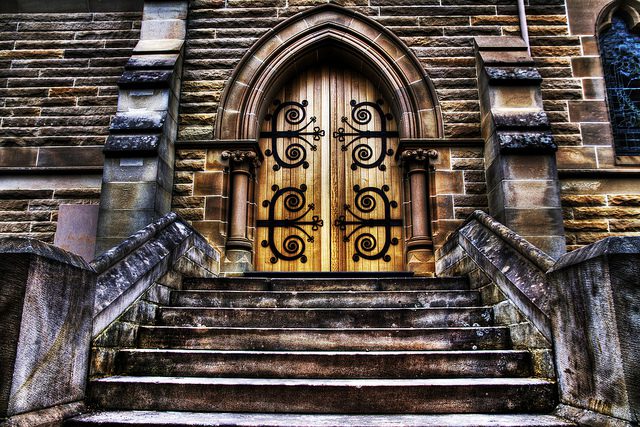
I was an evangelical Protestant, and I loved it.
Then I became a Catholic.
As a convert, I didn’t join the Church with any sort of starry-eyed vision of paradise. I knew what to expect. I wrote about what to expect. And I got what I expected.
There’s lots wrong with the Catholic Church. But, thankfully, we can fix it. Thankfully, if you believe what I believe, then you believe that Jesus founded a Church that He promised never to abandon. A Church that the “gates of Hades” would never prevail against. A Church that’s seen it’s fair share of challenges, strife, and controversy but a Church that, we believe, isn’t going anywhere.
Because on a journey like mine you meet a lot of interesting people and you have a lot of interesting conversations and you learn a lot, about yourself and others. And, so, I’ve learned a few things. I’ve learned, I think, a few things about what’s keeping devoted, earnest Christians from the Catholic Church—and, also, what’s driving them out.
So, that said, if I may be so bold, I’d like to stick a few slips of paper into the musty old suggestion box and, really, it’s all quite simple: If the Catholic Church believes that she is what she says she is, she needs to explain it better, know it better herself, and live it out, like really.
Wait, Why Even Bother?
The Catholic Church finds, at its very core, a mission of evangelization. Evangelization is the mission. So why bother worrying about why Christians are being kept from the Catholic Church? And what do I mean by Christians anyway?
And, most fundamentally, what does the Catholic Church believe about herself?
By Christian, I mean someone who values their relationship with Christ and lives accordingly. Why is it important to look closely at what’s keeping these sort of people out of the Catholic Church, well because these are the exact people the Catholic Church wants—and they aren’t finding their place in it.
Because, according to its teachings, the Catholic Church believes itself to be the Church founded by Jesus Himself, passed on through apostolic succession and the laying of hands, with the power of the papacy and all the sacramental graces of God. In other words, in the Catholic Church is the fullness of what it means to be a Christian.
I know, I know, not terribly cordial is it? And not very modern, but if you believe what the Church teaches about itself this is what you believe. And, truly, it makes historical and intellectual sense to me. All Christians are in communion, the Catholic Church asserts, but in the Catholic Church is a fuller communion—a communion with the Church that Christ built, that won’t be overcome, and that has the full graces of the sacramental life.
Ultimately, if you believe that the Church is what she says she is, that is, the full expression of God’s grace available on earth, then we have to be concerned with remaining faithful and attractive for all Christians.
Teaching Christians What Catholics Believe
The Catholic Church is incredible. This blog, and everything I write, is merely the tip of an enormous iceberg that I could surely spend the rest of my life exploring. Sometimes I come to write here nearly foaming at the mouth, you know this, and that’s great. I think. Because I love the Catholic Church and I couldn’t have fathomed its length and depth even in my early stages of exploration. It’s immense.
That said, as an evangelical Protestant who considered himself fairly educated in matters of faith and religion I knew incredibly little about the Catholic Church before I dug deeper. What I did know, for the most part, was always almost nearly backwards. In the end, I knew essentially nothing. This is the case for, I’d guess, the vast majority of evangelical Protestants.
Christians don’t know what Catholics believe, and if they think they do, I’d wager that they’re probably wrong.
And this is a problem.
If the Catholic Church is going to attract Christians who love Jesus and are seeking after Him it needs to become better at explaining what it believes.
Because, like I said, the Catholic Church is immense. For the Christian deeply devoted to Christ there is so much to love. There are myriad of ancient, rich devotions; an incredible depth of literature and prayers; a beautiful and holy rhythm in the liturgical calendar; and the availability of fulsome daily devotion like the Liturgy of the Hours and, incredible to me, the potential to attend daily Mass.
When I began to read about Catholicism from Catholics authors themselves it became clear to me that what I’d known about Catholics was mostly wrong. Instead, the Catholic Church was incredibly appealing and made a lot of sense. But earnest Christians don’t give the Catholic Church a second thought because they don’t understand, I’d wager, what the Catholic Church believes.
In the Catholic Church is the fullness of Christ. Catholics need to say this and then keep on explaining. Make the claim, stake out that ground, and then explain what exactly that means. Because the Catholic Church can’t be ashamed of being so bold-faced in making that claim, and Catholics can’t shrink back from explaining how we can receive such grace from the sacraments and from the Catholic faith life because, as Catholics, we must want all Christians to share in this, these incredible gifts.
Teaching Catholics What We Believe
Likewise, the Catholic Church, as I’ve written before, needs to do a much better job at explaining to Catholics what it believes. What they believe, as members of that Church.
Here’s what I mean.
In my journey so far I’ve met a dozen or so incredible Christians who, by their own admission, used to be Catholic.
So what’s the Catholic Church doing wrong?
In large part, the Catholic Church simply isn’t doing a great job at teaching Catholics what they believe and why it makes sense. Because it does make sense, on the deepest levels.
Because what’s happening in the sacraments like Baptism, Confirmation, in the Celebration of the Mass, and in Confession, just for example, is incredibly biblical, incredibly symbolic, and unfathomably rich. I’m talking about weighty, historic references to the Old Testament, tied together with the words of Christ and the symbolism of something like water, wine, or bread.
There’s rich stuff going on in the Catholic Church but not all Catholics know about it. As a devout Christian, I’ve found such fulfillment in beauty in what others, who were born and raised Catholic, had no notion of.
The Catholic Church needs to teach it’s members what they believe. Catechesis and spiritual formation needs to take a dominate role in both the parish church and in the family. Catholics need to talk to each other and, most important, begin to live out what they learn.
Believing What We Believe
This, then, is the final step and is, without doubt, the most difficult. We must believe what we believe, and live that out.
As a Catholic I don’t stop being an evangelical, my evangelicalism is embraced and melded into my life as a Catholic. I’m an evangelical Catholic. And I strongly believe that’s how we need to live.
That means that converts like me, Christians who have “discovered” the Catholic Church, need to play a special role in that evangelization. Because we speak the language, we’ve been there, and we’ve stumbled—through no work of our own—onto something more incredible than we ever could’ve fathomed in our former faith life.
Ultimately we, Catholics, are going to attract nobody else to the faith, not by our own efforts. We win no one by having the best arguments or the wittiest retort. It’s God who calls, and our prayers He’s looking to answer. So we must pray and, likewise, act accordingly. We must learn about our faith, be able to speak eloquently about our faith, and then attractively live out our faith daily.
And it’s that attractive living that’s so important. It’s that evangelization which is the Kingdom of God.
If we believe, as Catholics, that we have access to that much more of God’s grace through the sacraments and membership in what we believe is the very real, physical Church that Jesus Christ founded then we need to live accordingly. That means that being Catholic should be the most exciting thing in the world, right?
The Catholic Church needs to explain itself better to non-Catholic Christians. It needs to explain itself better to itself—to Catholic Christians. And, it needs evangelical Catholics who are ready to really believe in what they learn, and to live that out. This is the essential missionary posture of the Catholic Church and this, I humbly submit, is what’s needed to help swing those doors open just a little bit wider and let that much more light shine in.


